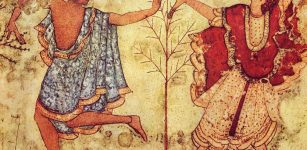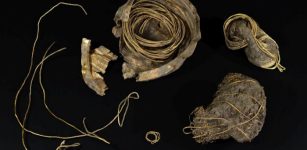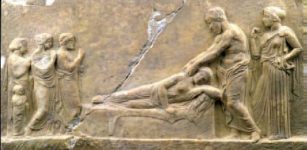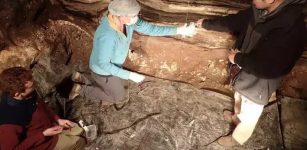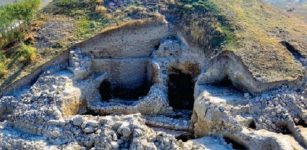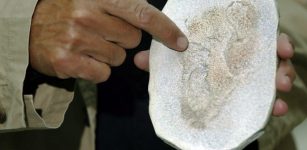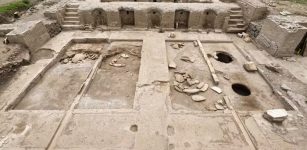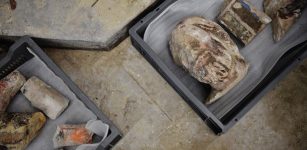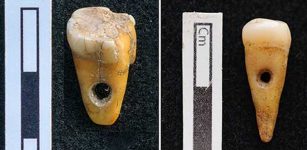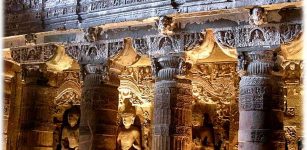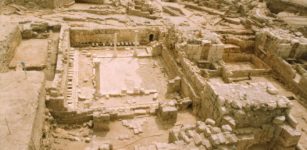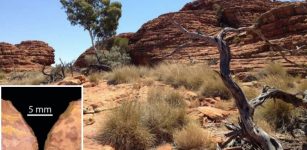2,000-Year-Old Medusa Mosaic Is Considered The Pearl Of Ancient City Of Kibyra
Conny Waters - AncientPages.com - Mosaics were a popular art form for thousands of years and in many cultures around the world.
The art is old and the earliest examples of mosaics were discovered in a Mesopotamian temple dating back to the 3rd millennium BC. Much later, this form of art appeared in ancient Greece and the Roman Empire.
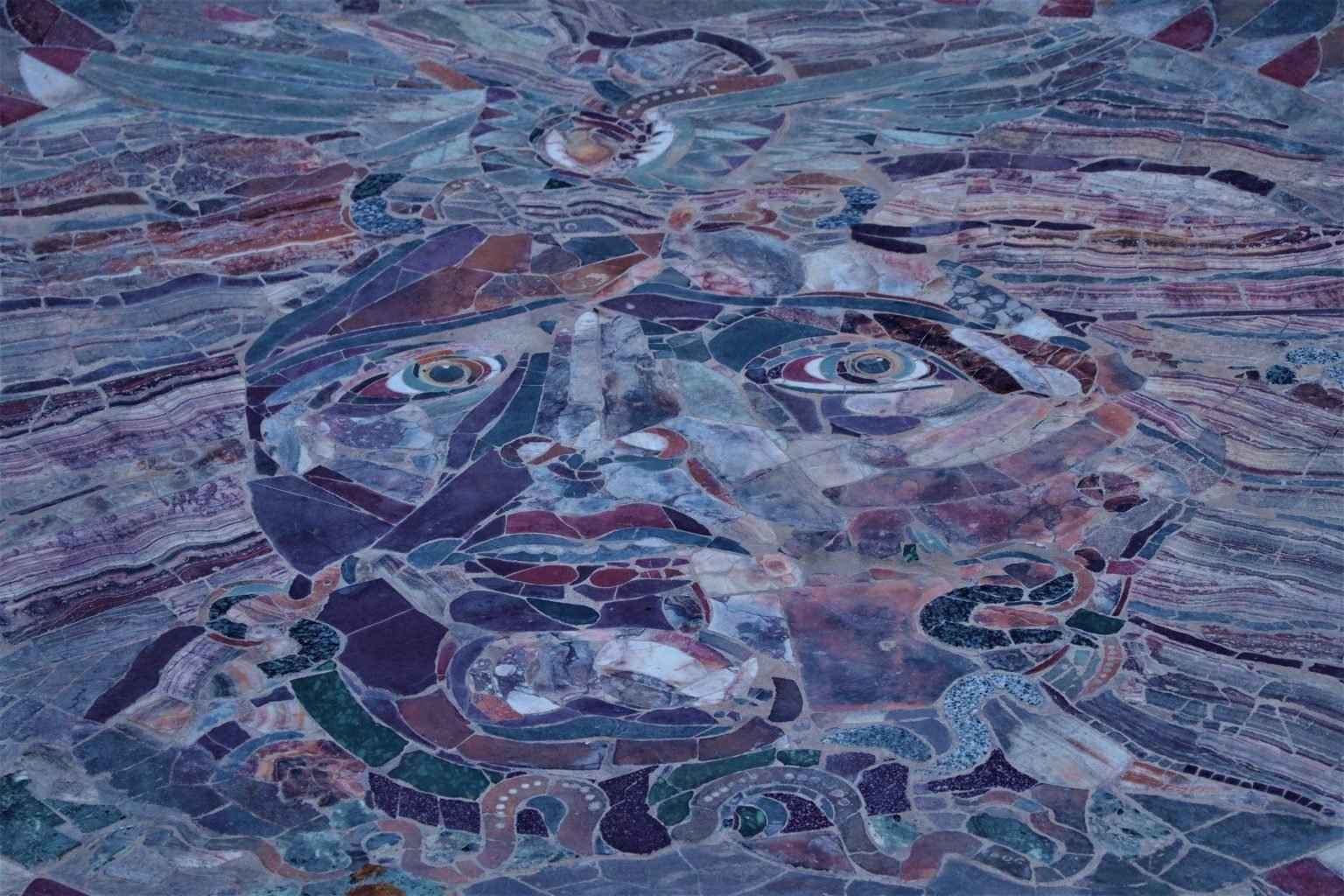 A close-up shot of the Medusa mosaic at the ancient city of Kibyra, Burdur, southern Turkey, Aug. 22, 2020, Image credit: AA
A close-up shot of the Medusa mosaic at the ancient city of Kibyra, Burdur, southern Turkey, Aug. 22, 2020, Image credit: AA
Mosaics unearthed in the ancient city of Perge in the southern province of Antalya are known as “Turkey’s second Zeugma” for their very attractive appearance. Other mosaics were found in the ancient city of Pergamum in Asia Minor.
The ancient city of Kibyra, located in Turkey's southern Burdur province, has also its mosaic. The nearly 2,000-year-old mosaic depicts Medusa, the "serpent-haired, sharp-toothed female monster" of Greek mythology, and adorns the orchestra section of the 3,600-seat Odeon, which served as a concert venue, parliament, court, and covered theater in ancient times.
This artwork is covered by five different layers for nine months of the year to protect it from weather damage, writes Daily Sabah.
The mosaic was built of colored marbles with the opus sectile technique in which materials were cut and inlaid into walls or floors to make a picture or pattern, in the first phases of the first century A.D.
See also:
Mosaics With Oceanus And Medusa In Tomb Of Ancient City Of Perge, Turkey
Wonderful Ancient Mosaics In Ancient City Of Zeugma, Turkey
Medusa – Cursed By Athena And Killed By Perseus
It is believed that the mosaic of Medusa, whose legend says it could “turn malicious people who look her in the eye into stone," is one of a kind.
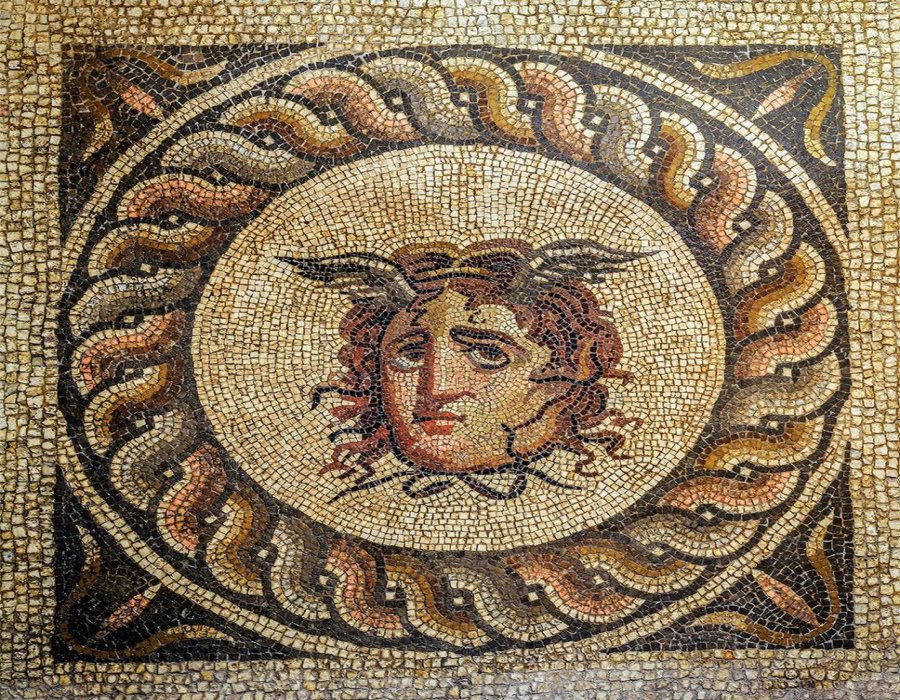 This mosaic depicts Medusa from Greek mythology. Image credit: AA
This mosaic depicts Medusa from Greek mythology. Image credit: AA
“The only Medusa mosaic made with the opus sectile technique and that managed to survive today is in the Odeon of Kibyra as far as we know. For this reason, Medusa is covered for a certain period of time each year for protection,” associate professor Şükrü Özüdoğru, head of the excavation team at the ancient city of Kibyra and archaeology academic at the Mehmet Akif Ersoy University (MAKU), told Anadolu Agency (AA).
Written by Conny Waters - AncientPages.com Staff Writer

